Discover Path of Wisdom: Dhamma Talks by Bhikkhu Dhammānanda
Path of Wisdom: Dhamma Talks by Bhikkhu Dhammānanda

Path of Wisdom: Dhamma Talks by Bhikkhu Dhammānanda
Author: Bhikkhu Dhammānanda
Subscribed: 13Played: 55Subscribe
Share
© All rights reserved.
Description
Dhamma Talks by Bhikkhu Dhammānanda, a Theravāda Buddhist monk offering insights into the timeless spiritual teachings of the Abhidhamma and Buddhist philosophy. Each episode presents reflective Dhamma teachings on meditation, spiritual development, and the nature of reality. Whether you’re new to Buddhism or deepening your practice, these talks provide practical insights for cultivating a more mindful and meaningful life.
Visit my website (https://highermindart.info) for more Dhamma talks, articles, books, and spiritual resources. See more talks on my YouTube channel: @bhikkhu-dhammananda
21 Episodes
Reverse
In this Dhamma talk, Bhikkhu Dhammānanda explores the Buddha's most fundamental teaching: The Four Noble Truths. Just as an elephant's footprint is large enough to contain the footprints of all other animals, the Four Noble Truths contain all other skillful teachings within Buddhism.The discussion moves beyond the common translation of 'Dukkha' as merely "suffering" to understand it as "imperfection" and "unsatisfactoriness"—a quality that pervades life from birth to death, and even into the nature of consciousness itself.Topics covered in this episode:• The First Truth: Why "Dukkha" encompasses the whole spectrum from subtle imperfection to gross suffering.• The Second Truth: The origin of suffering and the 12 links of Dependent Origination.• The Third Truth: The optimistic reality that suffering can end (Nirvana).• The Fourth Truth: The Noble Eightfold Path as a practical guide for daily life.• Meditation: How to develop Clarity (Mindfulness) and Samadhi (Stillness).Resources:• Download the book 'Paramattha' for free: https://highermindart.info• Watch the video version on YouTube: [https://youtu.be/QdmP0hYc2bw?si=i7Y5Z3wPNFCdQDsA]
Meditation on the four elements — A Practical Guide. In this talk you’ll learn practical steps for meditation: setting a quiet space, reciting the element names, perceiving elemental qualities in everyday experience, and body‑scanning techniques to develop insight and inspiration. This talk explains how each element can reveal deeper capacities — earth for confidence and firmness, water for empathy and depth, fire for inner light and vision, and air for lightness and subtle energy (prāna/chakras). If you’ve practiced ānāpāna and want a complementary method, this guide helps you stay with what works while exploring new insights. Download my free booklet on the four elements and related resources at https://highermindart.info/books — see the book Paramattha for still deeper context.For watching the video on YouTube here is the link 🔗:https://youtu.be/s0Vv7sPPh4ATimestamps: 00:00 Intro - What Are the Four Elements? 03:56 How to Meditate: Setup, Recitation, and Perception 05:53 Using the Four Elements as a Mantra or Prayer 11:32 Body Scanning Techniques for Insight 15:12 Higher Experiences: Superior Aspects of the Four Elements 15:32 Superior Earth Element: Confidence and Strength 18:25 Superior Water Element: Genuine Compassion and Depth 22:05 Superior Fire Element: Inner Light and Visualization 28:00 Examples from Daily Life 30:50 Tummo Practice and Fire's Power 31:53 Superior Air Element: Being in Tune, Prāna, and Chakras 36:51 Closing Blessing and Resources Which element resonates with you most? Comment below and subscribe for more Abhidhamma-level meditation talks.
A short Dhamma talk on Anapanasati (mindfulness of breathing) and five factors of Jhāna. Whether you are a beginner or have been practicing meditation for some time, this talk offers some insights into mindfulness, concentration, and developing meditative joy.You can also watch this talk on YouTube (https://youtu.be/BQCNLyMLFew?si=UV83yGZirQhihyiL).
Impermanence is everywhere—in the things we own, in the people we love, in our thoughts and memories, and even in our very character. In this brief talk, I explore Vigata-paccaya, the Abhidhamma condition of impermanence, and show how reflecting on it can turn suffering into wisdom and lead the mind toward the Deathless.This talk is also part of my ongoing Paṭṭhāna series.For a deeper perspective, I recommend reading my book Paramattha or listening to my introductory talks on Abhidhamma: “Basics of Buddhist Philosophy” and “Paṭṭhāna – The Grammar of Insight”. There is now also a video on these topics available on Bhikkhu Dhammānanda’s YouTube channel: @bhikkhu-dhammananda
In this brief Dhamma talk, I explore the idea of “duration”—and why, in many cases, it might be more helpful to reflect on endurance and continuity rather than simply contemplating that all things are momentary phenomena which continuously arise and cease.This talk is also part of my ongoing Paṭṭhāna series, where I use the word “duration” as a personal translation of the Pāli term “Avigata.”For a deeper perspective, I recommend reading my book Paramattha or listening to my introductory talks on Abhidhamma: “Basics of Buddhist Philosophy” and “Paṭṭhāna – The Grammar of Insight”.
In this Dhamma talk, I explore the foundations of the world—how everything arises based on a foundation of something else. As part of my Paṭṭhāna series, I translate the Pāli word nissaya as “foundation.” Following the pattern of previous Paṭṭhāna conditions, I examine how the concept of “Foundations” relates to the four ultimates (paramattha) of Abhidhamma philosophy: Matter, Mind, Consciousness, and Nibbāna.For a deeper perspective, I recommend reading my book Paramattha or listening to my introductory talks on Abhidhamma: “Basics of Buddhist Philosophy” and “Paṭṭhāna – The Grammar of Insight”.
In this Dhamma talk, I discuss correspondences in nature and how thinking in analogies can be a valuable aid on the path to enlightenment. This talk is part of my Paṭṭhāna series, focusing on the Paṭṭhāna condition Aññamañña Paccaya.For a better understanding of the meaning of the Paṭṭhāna I suggest listening to the two talks: Basics of Buddhist Philosophy and Paṭṭhāna- The Grammar of Insight, or to read my book Paramattha, which can be downloaded for free on my website (https://highermindart.info/books).
In this Dhamma Talk, I explore the ‘Universality of Sequences,’ showing how sequences are a phenomenon that exists throughout existence (broken down into matter, mind, consciousness, and Nibbāna) and are even part of the path to enlightenment.This is part of my Patthana series, which is introduced in the talks “Basics of Buddhist Philosophy” and “Patthana- The Grammar of Insight”.For gaining a good overview on Buddhist Abhidhamma Philosophy, I recommend downloading my book Paramattha (free to download) or to check out my website www.highermindart.info.
Hetu Paccaya, usually translated as the condition of Roots, is the Paṭṭhāna condition which describes the nature of an inner establishment in relation to mind, matter and consciousness. This Dhamma talk gives a new perspective both on the nature of experiential reality as well as on the Paṭṭhāna condition of Roots. This is part of my “Paṭṭhāna series” talks, which can be found on my website (https://highermindart.info/dhamma-talks/) For a better understanding of my rather untraditional way of understanding the Paṭṭhāna conditions, I suggest to have a look at my website, or to read my book “Paramattha” which can be downloaded for free on the same website: https://highermindart.info . For more material you can also have a look at my YouTube channel @bhikkhu-dhammananda
The Four Noble Truths are the central tenet of Buddhism. This foundational teaching offers profound insights into the nature of existence and the path to inner peace.For more teachings on Buddhist Philosophy have a look at https://highermindart.info or on YouTube @bhikkhu-dhammananda
The Patthãna Conditions of Abhidhamma basically constitute the Grammar of insight in Buddhist Philosophy.In this talk I explore the dual nature of all phenomena, both material and mental, through the lens of latency and manifestation. Latency and Manifestation are my translations of the two Patthana conditions of Purejata and Pacchajata. This talk is a talk in my Patthana series.For more teachings on Patthana, Buddhist Philosophy in general, or meditation, I suggest having a look onto my website: www.highermindart.info. You can also download my book "Paramattha" for free (https://highermindart.info/books), where I explore in depth all major aspects of Buddhist Philosophy.
For a better understanding of my rather untraditional way of understanding the Patthana conditions, I suggest to have a look at my website, or to read my book "Paramattha" which can be downloaded for free on my website: https://highermindart.info
In this talk I explore the inner nature of donation or "giving", and the use the practice has for our spiritual path.You can find various writings and other talks on similar subjects on my website: https://highermindart.info
This talk explores the difference between Visualisation and Imagination, and how both relate to the spiritual path.
In this short Dhamma talk, I explain how to balance the four elements both in meditation and in daily life. This is a follow up talk to the previous talk on the Four Elements.
Throughout the ancient world the concept of the four elements has been used, not only to better understand and classify matter, but indeed for understanding the wholeness of an individual's experience.This Dhamma talk gives a comprehensive overview over what these four elements are and how they may be used for meditation and for gaining deeper insights into the nature of our own experience. On my website (https://highermindart.info) there can be found a corresponding booklet, as well as various articles on the subject.
A talk on Repetition as a universal fact of existence. Part of my Patthana series, in this talk I explore the Patthana condition of Repetition, Asevana Paccaya. As usual I try to explore this Patthana condition in relation to Matter (Rupa), Mind (Citta), Consciousness (Viññana), and Nibbana.For more teachings on Patthana, Buddhist Philosophy in general, or meditation, I suggest having a look onto my website: www.highermindart.info. You can also download my book "Paramattha" for free (https://highermindart.info/books), where I explore in depth all major aspects of Buddhist Philosophy.
This Dhamma talk explores how Kamma (/ Karma) operates. How our intentions, habits, and attachments will condition our future and what we become.If you have an interest in understanding the law of Karma (Pali - Kamma) in greater depth, I have written various articles about it, which you can find under: https://highermindart.info/category/kamma. However the perhaps most foolproof and step-by-step manner to exploring the workings of Kamma may be found in my book "Paramattha - A guidebook for consciousness and a modern exploration of ancient Buddhist Abhidhamma teachings" (which can be downloaded for free using the following link: https://highermindart.info/sdm_downloads/paramattha-abhidhamma-books-2 or by going the the books section on my website: https://highermindart.info)
This talk explores the 22 Indriyas of Buddhist Abhidhamma philosophy. These 22 Indriyas (faculties / powers) are important mental and physical phenomena that influence the functioning of mind and body.Often they are categorized into different types, such as physical faculties, mental faculties, and supramundane faculties. The Indriyas play a crucial role in the Abhidhamma analysis of the human experience and the process of enlightenment.I have considered them in this talk in a slightly untraditional manner. For a better understanding of my rather untraditional way of understanding the Patthana conditions, I suggest to have a look at my website (https:// highermindart.info), or to read my book "Paramattha" which can be downloaded for free on the same website.
'The Patthana', traditionally regarded as the quintessence of the Buddha's wisdom and as the surest proof of his omniscience; is a system which, in mathematical order, seeks to expand the comprehension of matter, mind, consciousness, and Nibbana (as delineated in the previous talk); to cover the entirety of existence.In total there are 24 Patthana conditions. And these may perhaps best be thought of as patterns in the phenomenal world (that is, patterns in how material and mental things occur). But, as phenomenal realities are so to say the objects a meditator seeks to gain insight in, the Patthana may equally be viewed as the grammar of insight. Thus, the Patthana is a system which is seeking to reduce the infinite variety of phenomena, or the infinite amount of life experiences, to a finite amount of universal realities which follow 24 possible modes or ways of relating to each other.For a proper comprehension of the subject, I recommend reading my book Paramattha (free to download under https://highermindart.info/books). Apart from that, on my YouTube channel (@bhikkhu-dhammananda) you can find already a number of talks exploring several of the Patthana conditions in greater depth.



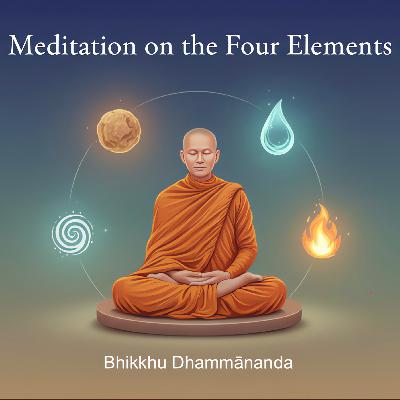

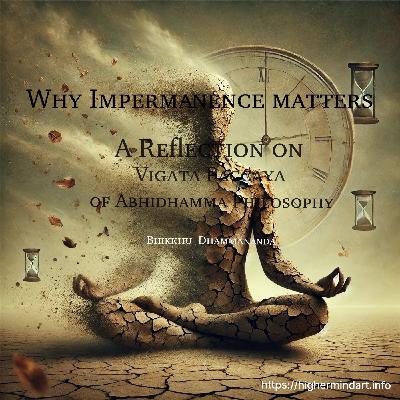

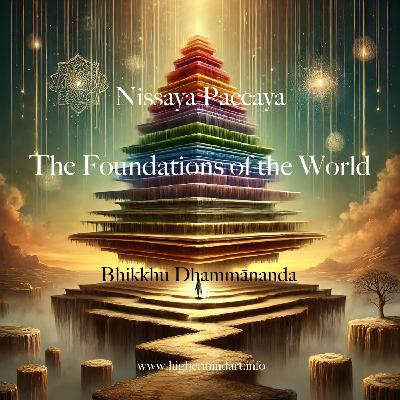
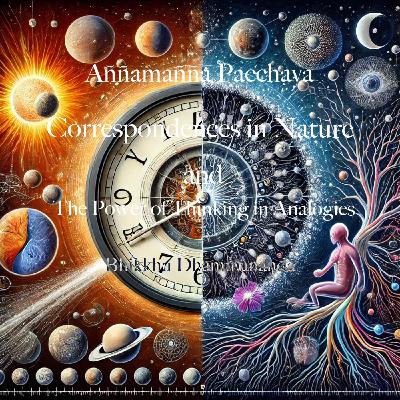



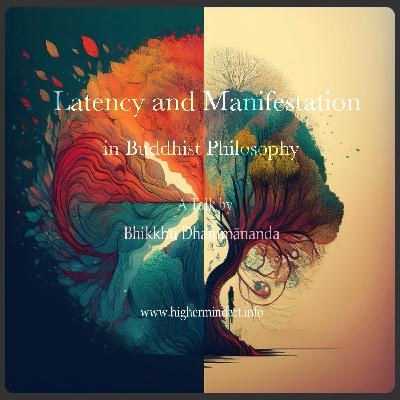



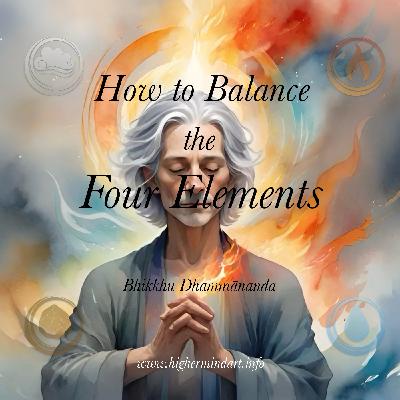

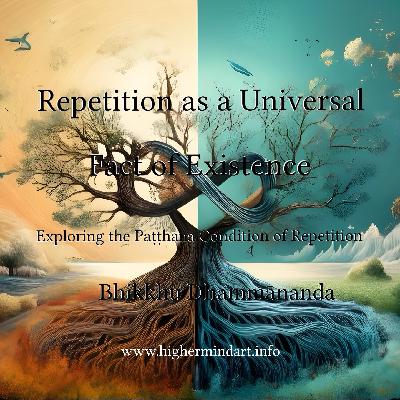
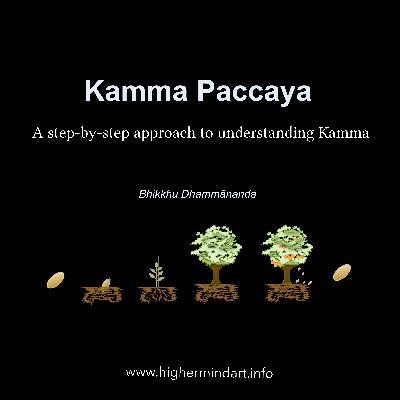
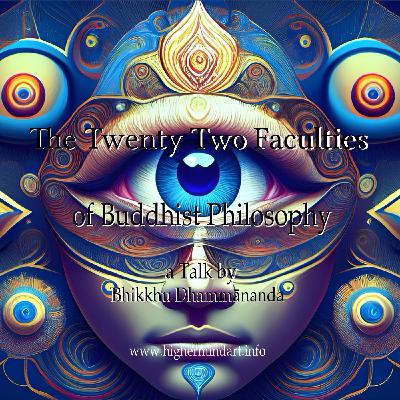
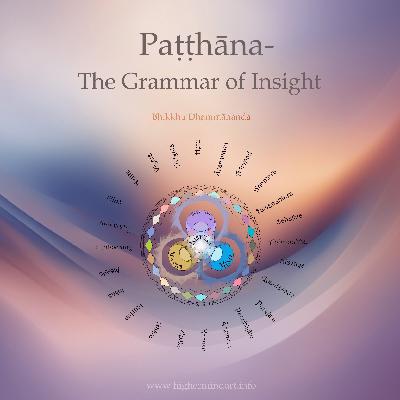



Buddhist Wisdom on Reality